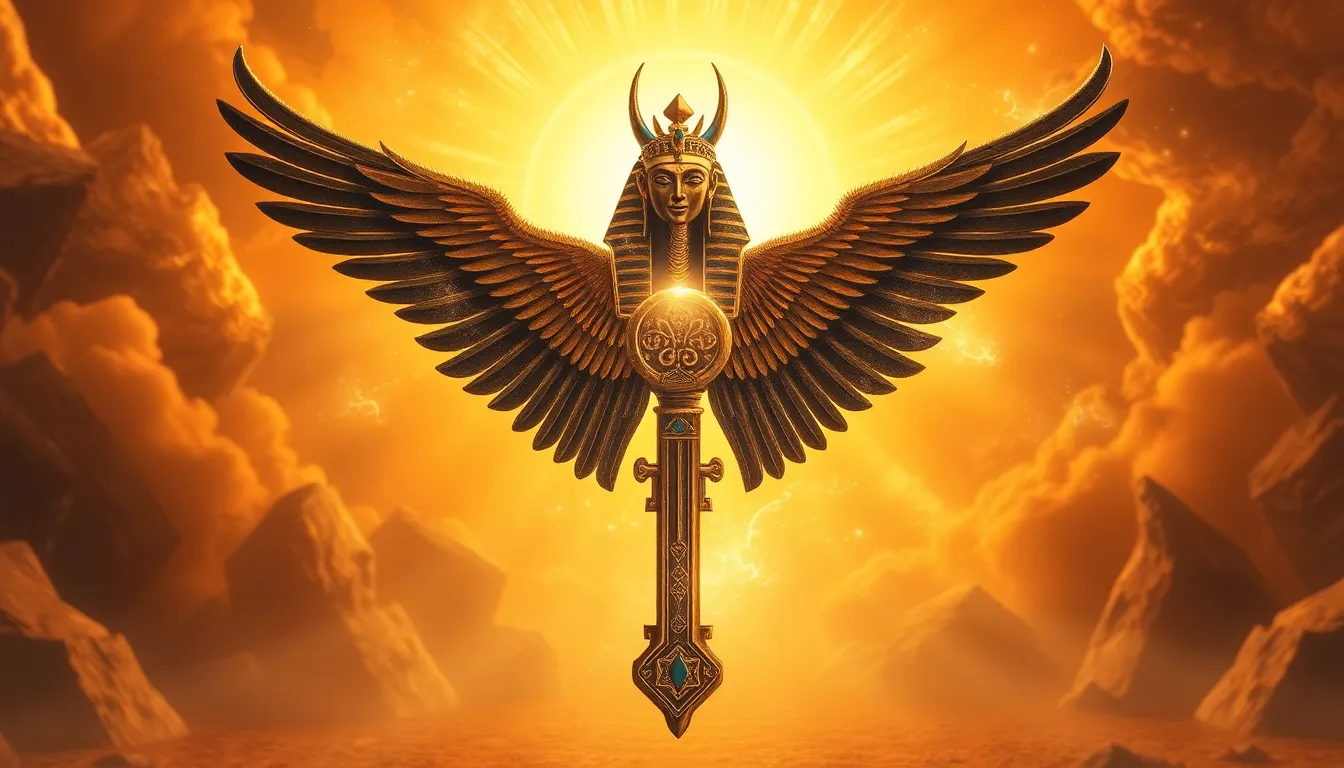The Divine Key: Unlocking the Secrets of Egyptian Myths
I. Introduction
Egyptian mythology is a rich tapestry of stories, beliefs, and rituals that shaped the ancient civilization of Egypt for thousands of years. This mythology not only served as a means of understanding the world but also reflected the values, fears, and aspirations of the Egyptian people. The purpose of this article is to delve deeper into the profound meanings and lessons embedded within these myths, revealing the divine key to understanding their significance.
The concept of “The Divine Key” refers to the insights and wisdom that can be unlocked through the study of these ancient narratives. By examining the myths, we can gain a better understanding of the human experience, spirituality, and the mysteries of life and death as conceived by the ancient Egyptians.
II. The Historical Context of Egyptian Myths
The origins of Egyptian mythology can be traced back to the early days of ancient civilization, where a blend of religion, culture, and societal norms gave rise to a complex system of beliefs. These myths were largely influenced by the geography of Egypt, particularly the Nile River, which was seen as a lifeline for the people.
Key historical figures, such as pharaohs and priests, played a significant role in shaping and propagating these narratives. The pharaohs were often viewed as divine beings, intermediaries between the gods and the people, which further solidified the connection between religion and governance in ancient Egypt.
Religion and spirituality were integral to daily life in ancient Egypt. Temples were constructed as places of worship, and ceremonies were performed to honor the gods, ensuring their favor and the continuation of life on Earth.
III. Major Egyptian Deities and Their Symbolism
The Egyptian pantheon consists of numerous deities, each embodying different aspects of life and nature. Here are some of the prominent gods and goddesses:
- Osiris: God of the afterlife, resurrection, and fertility.
- Isis: Goddess of motherhood, magic, and fertility, known for her role in the resurrection of Osiris.
- Ra: The sun god, symbolizing life, warmth, and light.
- Horus: The sky god, often depicted as a falcon, representing kingship and protection.
Each deity carries unique symbolism and narratives:
- Osiris symbolizes rebirth and the cycle of life and death.
- Isis represents the power of love and the resilience of family.
- Ra embodies the life-giving power of the sun, crucial for agriculture.
- Horus signifies the divine right of kings and the protection of the nation.
The interconnectedness of these deities illustrates the complexity of Egyptian mythology, where gods and goddesses interacted and influenced each other’s domains and narratives.
IV. The Role of Myths in Understanding Egyptian Culture
Egyptian myths served various purposes within society, reflecting the values and moral lessons of the people. They provided explanations for natural phenomena, such as the flooding of the Nile or the changing of the seasons, helping people make sense of their world.
Additionally, myths played a significant role in art, literature, and architecture. Temples, tombs, and monuments often depicted mythological scenes, and stories were inscribed on papyrus scrolls, preserving the narratives for future generations. This artistic expression was not merely for aesthetic purposes but was deeply intertwined with religious beliefs and cultural identity.
V. The Afterlife and the Journey of the Soul
A critical aspect of Egyptian mythology is the belief in the afterlife and the journey of the soul. The ancient Egyptians held a firm belief in life after death, which shaped their burial practices and rituals.
The Book of the Dead is a significant text that outlines the teachings and spells designed to guide the deceased through the afterlife. This collection of writings emphasizes the importance of living a virtuous life and the need for moral judgment after death.
Myths surrounding the journey of the soul often depict trials and tribulations that the deceased must face, including the weighing of the heart against the feather of Ma’at, the goddess of truth and justice. This judgment determined the soul’s fate, whether it would be granted eternal life or face annihilation.
VI. The Influence of Egyptian Myths on Modern Culture
The allure of Egyptian mythology has not waned over the centuries; in fact, it continues to inspire contemporary literature, film, and art. From cinematic adaptations to novels exploring ancient themes, the stories of gods and goddesses resonate with modern audiences.
There has been a resurgence of interest in Egyptian mythology, evident in popular culture through:
- Movies like “The Mummy” and “Gods of Egypt”.
- TV shows such as “American Gods” that incorporate Egyptian deities.
- Video games like “Assassin’s Creed: Origins” that explore ancient Egyptian settings.
Furthermore, cross-cultural influences have led to adaptations of Egyptian myths in various forms, highlighting their universal themes of love, loss, and the quest for immortality.
VII. Unraveling the Mysteries: Interpretations and Theories
Scholars have long sought to interpret Egyptian myths, offering various theories about their meanings and purposes. Over time, these interpretations have evolved, reflecting changing perspectives in archaeology, anthropology, and religious studies.
Modern theories suggest that myths served not only as religious narratives but also as a means of social cohesion, helping to instill shared values and beliefs within the community. The ongoing quest to understand the hidden messages within these myths continues to intrigue researchers, leading to new discoveries and insights.
VIII. Conclusion
Unlocking the secrets of Egyptian myths is a journey into the heart of one of history’s most fascinating civilizations. These narratives offer profound insights into human nature, spirituality, and the complexities of life and death. The lasting legacy of Egyptian mythology continues to resonate in today’s world, inspiring countless individuals to explore the ancient wisdom contained within these stories.
We encourage readers to delve deeper into the world of Egyptian mythology, to seek out the lessons and truths that lie beneath the surface. The divine key to understanding these ancient narratives is not just in their tales, but in the timeless wisdom they impart to us today.




